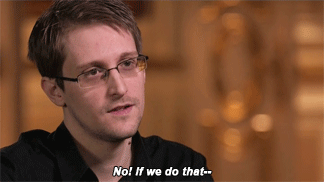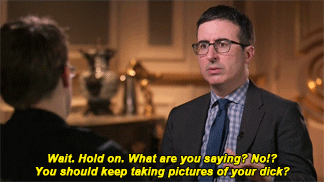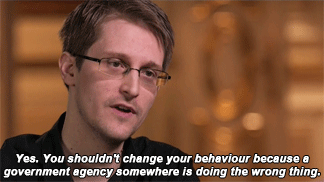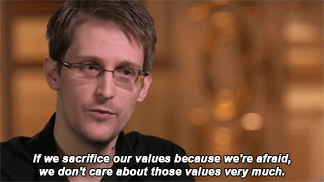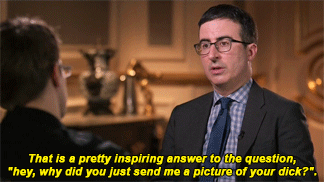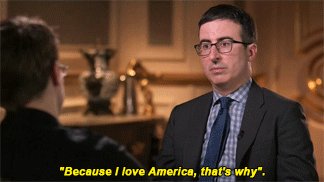Ha ha ha! This blog post is late. Actually what is wrong with me? But it doesn't matter! 'Cause I graded myself for the blog posts. Ha! Ha. He he. He.
^ Sorry about that. It's 1:44am. What am I doing with my life? I still have not figured out how to manage my time and stuff. It's okay. I'm just a lil freshman. There is time for being responsible in the future. Or at least that is what I tell myself in moments like this.
ANYWAY...
This class. I could not be happier I took it. In every way. I would like to start with you as a Professor and person, Janelle. I love that we have no clue if you are actually a Professor and that you have straight up told us that the reason you named the course "Truth, Lies, and Literature" is because it sounds like "Sex, Drugs, and Video games" (if I remember correctly, memory is shady sometimes. Did you know? Yes, of course you know. We learned that.) You literally say "turnip" instead of "I love you" to your husband, and love your dogs like human beings (which I totally support, animals are very important). I just think that's all great, and has challenged my idea of what a "Professor" has to be like. I like to think about you vs. my advisor, who fills the Professor stereotype I have been conditioned to believe in thanks to the media (darn manipulation!!).
Leaving this class I have learned a lot. A lot about myself, really. I have never been someone that put a huge weight on my grades. That was never my motivation, honestly. Coming to Hamilton, I initially felt a little out of place and questioned my academic priorities when I felt like everyone else was so darn set on getting an "A" on everything, and I just wanted to learn about things I was passionate about. This class has revived this innate desire I have to do my personal best and follow my passions. It has made me really excited to start making decisions that matter and taking steps towards a meaningful life.
I also love knowing about manipulation and allowing myself to imagine where it is and comes from. This is something I had a little bit before the class. It comes from both of my parents who seem to have a borderline obsession with conspiracy theories (shh.. don't tell anyone, they are both just a little coocoo, but so am I so it's cool). I like looking at things that are presented to me and then looking at them even deeper to find out it's actually just a bunch of bullshit. In fact, it makes life a lot easier. Behind most things that are intimidating and inhibiting, is usually a lot of manipulation. Even if the manipulation is intended to help people in the long run, it is still manipulation and can be overcome. I feel like this class has taught me that you can get out of any negative situation by outsmarting the person/thing manipulating you. I love that.
Looking to the future I look forward to being aware of manipulation and embracing it. I'm not scared of it. I know it's there. I can work with that. It's when you don't know you are being manipulated that there is a problem. I know it's there. I am above it. Woot. Woot.
Wednesday, May 6, 2015
Manipulation
As we progressed through the semester in this course, we have come from the analysis of the search for truth to an investigation of choice. All throughout though, there has been manipulation. For many weeks, I have struggled to reconcile manipulation and its meaning in this course. Manipulation is not inherently true or false, and it is also not forcing anyone to make a choice, simply a persuasive argument (albeit sometimes very sneaky).
Janelle began the semester trying to make us aware of the manipulation going on all around us. At times this was overwhelming for me. Of course there is manipulation everywhere! Someone is always trying to further their own agenda by convincing, or tricking others into doing what they want them to do. Awareness of this manipulation may help me avoid being tricked sometimes, but it certainly can't help all the time, and the awareness can be crippling at times. Almost everything can be argued to act as manipulators, and having awareness of everything is extremely time consuming and probably more harmful than good. I then focused on the idea that hopefully with time, being aware of manipulation will help me hone the skills to filter out the noise. The relatively harmless manipulation that can't hurt me too much. Then hopefully I'll still catch the really important instances of manipulation.
With time though, I came to my current conclusion about manipulation. This is that it is essential in life. Self manipulation allows us to make decisions. Advertising manipulation helps businesses grow and spread their products across diverse markets. Oral manipulation allows speakers to move audiences for meaningful change in the world. Manipulation takes on many forms and many motives, sure, but we absolutely could not live without it, and therefore I believe that we should embrace it. Use it to our own ends. Learn from it. Make mistakes because of it. Awareness of the omnipresent nature of manipulation can only help us learn ever more from it and be better off as a result.
Janelle began the semester trying to make us aware of the manipulation going on all around us. At times this was overwhelming for me. Of course there is manipulation everywhere! Someone is always trying to further their own agenda by convincing, or tricking others into doing what they want them to do. Awareness of this manipulation may help me avoid being tricked sometimes, but it certainly can't help all the time, and the awareness can be crippling at times. Almost everything can be argued to act as manipulators, and having awareness of everything is extremely time consuming and probably more harmful than good. I then focused on the idea that hopefully with time, being aware of manipulation will help me hone the skills to filter out the noise. The relatively harmless manipulation that can't hurt me too much. Then hopefully I'll still catch the really important instances of manipulation.
With time though, I came to my current conclusion about manipulation. This is that it is essential in life. Self manipulation allows us to make decisions. Advertising manipulation helps businesses grow and spread their products across diverse markets. Oral manipulation allows speakers to move audiences for meaningful change in the world. Manipulation takes on many forms and many motives, sure, but we absolutely could not live without it, and therefore I believe that we should embrace it. Use it to our own ends. Learn from it. Make mistakes because of it. Awareness of the omnipresent nature of manipulation can only help us learn ever more from it and be better off as a result.
Did any of it even matter?
Looking back on this course, I agree with what many of the other blog posts that I have just read have said in that it really was the most power that I have ever had in a class: not only because of the direct say that I had in dictating the outcome of my own grades, but in the weight that all of my decisions held due to the fact that I felt a newfound need to really think through them and validate them in some way. I have always been a person who makes decisions very lightly. I wouldn't say that I am instinctually a shallow thinker but in the right setting and context, I would not previously have hesitated to jump to the most easy solution and not think twice about it. However in this class, Janelle really took this thought process, and dissected/reversed it for me. Our assignments were no longer about the actual outcome (because the grading was majorly taken out of her hands) but instead solely about the process. Being forced to reflect on the papers that we wrote without any affirmation of their value other than comments but the responsibility of assessing, reworking, and learning from them back in our own hands. This course conceptually taught me to go about things slowly and carefully as opposed to as a means to an end.
Tuesday, May 5, 2015
so what
This years class about truth and lies in literature, like we talked about in class, has made me completely aware of the abundant manipulation surrounding me, and has allowed me to be able to see myself being manipulated. Suggestion and influence are powerful external (and internal) forces that effect our individual decisions. To ensure the decisions we make are in our best interest, we must be aware of the constant manipulation surrounding us. We are always being manipulated, in positive and negative ways. This class has made me able to identify manipulation and selectively choose what effects my decisions. This class has given the us control at a time in our lives where it doesn’t seem like we have much. We’ve been exposed to the manipulation of literature, school, media, and with it, the choice to defy them. Although our efforts to leave and return to class were anticlimactic and largely ineffective, it was the first glimpse of agency our class collectively showed. We felt as though we were choosing to not let class rules manipulate our actions. Thinking about the “so what” assignment, I’ve realized how applicable this class is to real life, something I can’t say about most english classes I've taken. I’ve been hyper aware of manipulation and seen it everywhere from my closest friends to the media. The “so what” seems to be that just being aware of the perpetual manipulation around us lends us the choice to ignore them, opening infinite choices of action of which we can then independently decide on.
Tysm truth, lies, & lit. :-)
As I sit here typing this, I realize that I am so glad I listened to my lab TA’s advice and signed up for this class.
My school district back home had certain students placed in a different curriculum based on learning styles, work ethic, etc., and I was placed in an English class veeeeery similar to Truth, Lies, and Literature. That being said, this class still came as a total surprise. Before Hamilton, I was used to “lenient” teachers and random and creative class discussion. When freshman year started, I was kind of let down by how structured every single class was, and I felt like such a sponge (meaning all I did was soak up info and spew it back out on an exam). I found that I wasn’t in any of the small, intimate classes that Hamilton advertises, and I didn’t think I was really learning effectively or relating to any of the material as a result.
This class was/is so different from every other class I’ve taken here so far. It is like my high school English class in that in order to extrapolate any sort of meaning from the class, we each really have to be engaged and active participants. It has made me more aware to detach myself from an environment or experience in order to examine any underlying manipulations that might be (and probably are) present. This is the sort of stuff that we should have learned throughout our lives in school because it is so valuable as we get older and really begin to learn how the world functions.
My school district back home had certain students placed in a different curriculum based on learning styles, work ethic, etc., and I was placed in an English class veeeeery similar to Truth, Lies, and Literature. That being said, this class still came as a total surprise. Before Hamilton, I was used to “lenient” teachers and random and creative class discussion. When freshman year started, I was kind of let down by how structured every single class was, and I felt like such a sponge (meaning all I did was soak up info and spew it back out on an exam). I found that I wasn’t in any of the small, intimate classes that Hamilton advertises, and I didn’t think I was really learning effectively or relating to any of the material as a result.
This class was/is so different from every other class I’ve taken here so far. It is like my high school English class in that in order to extrapolate any sort of meaning from the class, we each really have to be engaged and active participants. It has made me more aware to detach myself from an environment or experience in order to examine any underlying manipulations that might be (and probably are) present. This is the sort of stuff that we should have learned throughout our lives in school because it is so valuable as we get older and really begin to learn how the world functions.
Every Step of the Way
From the very first class of the semester I knew that this course would be very different from any other course I have taken at Hamilton thus far. Professor Schwartz treated us as more than just students and let us explore beyond the limits that we are usually confined to in other courses. For that, I am thankful because it has help me learned more about the world we live in as well as myself, rather than just material from a book. Many of the things I have learned were outside of my understanding while some of the things were literally right there in front of me all along. So, here's what I take away from this course:
1. ALWAYS READ THE EPIGRAPH.
1. ALWAYS READ THE EPIGRAPH.
2. "Nonfiction" is just a label. It doesn't mean that it is fact. This also includes documentaries.
3. Question everything (even though this wasn't a philosophy course).
4. What we think we know is actually an illusion but once we acknowledge that, we can discover some greater truths.
4. What we think we know is actually an illusion but once we acknowledge that, we can discover some greater truths.
5. Meaninglessness is actually a kind of meaning.
6. Telling a story does not necessarily mean you are lying.
7. Do what you love and love what you do. Self-actualization.
8. Having too much freedom of choice can cause a lot of anxiety and pressure.
9. We are subjected to manipulation everyday - positive and negative.
10. I was manipulated into learning everything on this list. And yet, I am perfectly okay with that.
Overall, I feel like I've learned more through this course than what the title gives off. Truth, lies in literature? More like truth, lies in people. Circling back to the explanation Professor Schwartz gave us in the beginning about the title, truths and lies can be found in people, but people can also have truths that lie. My everyday life consists of people and relationships and therefore I am almost always exposed to truths and lies. However, I believe that through awareness and understanding, I can discover more that humanity has to offer.
Truth and Lies in Everything
As we near the end of the semester, I started to really
reflect on all the things I have learned in my classes. Being a Biology major
pursing the medical field, I am constantly taking science classes where I learn
about how the world works. In these science classes, I found that I was
learning specific topics that were in depth. Although these classes are
extremely interesting and capture my attention, when I tried to reflect on how
it related to my everyday life and perception, I could not really think of many
aspects that I could relate to. On the other hand, when I thought about this
class, I found that the material I learned in this course were really things
that I could reflect on to my own life. As we read and analyzed the many
different manipulative techniques and use of lies, I was exposed to a different
approach and perspective to life. These techniques can be found almost any
place that human-to-human communication is made. As the semester has
progressed, I found myself noticing these manipulations more and more. In many
of my blog posts, I have already talked about the use of brand names and how
that in itself is a manipulation. These brand names basically tag their
products in order for people to remember them and to buy them thinking that the
name label made them worth more than something normal. Take for example plain
t-shirts. Whenever I go shopping at outlet malls, I always notice plain
t-shirts at various brand name shops. Just for a logo that is in the very small
left hand corner that cant be seen causes the shirt to be $20 more dollars than
a shirt that does not have a brand. This was really intriguing to me, and after
relating it to the course, I told myself to never buy a plain t-shirt from
brand names.
Bored in the USA
Okay, it’s Tuesday and once again I’m doing my blog post on music. This time the song I’m going to be talking about is “Bored In The USA” by Father John Misty. The first time I listened through the song, it seemed to be a pretty typical indie folk song. The lyrics basically detail the singer’s disillusionment with the “American Dream”. The song begins with the verse:
How many people rise and say
My brain’s so awfully glad to be here for yet another mindless day
Now I’ve got all morning to obsessively accrue
A small nation of meaningful objects they’ve gotta represent me too
By this afternoon I’ll live in debt
And by tomorrow be replaced by children
At least to me, it seemed the singer was railing against the consumerism that has become a staple of American culture. This observation, however has been so overstated within the indie folk genre of music in the past few years that it has been transformed into something cliche and unoriginal.
While I enjoyed the first portion of the song, the portion of the song that truly stands out is towards the end, where the singer begins listing his complaints:
They gave me useless education
And a sub-prime loan on a craftsman home
Keep my prescriptions filled
And now I can’t get off but I can kind of deal
After each of these lines the listener can hear an audience laughing. At first listen, this addition baffled me. This is the climax of the song, where all of society’s lies and disappointments are called out for their shortcomings, and the singer can finally air his grievances. Yet after each complaint these laugh tracks played, taking away from the seriousness of his issues and limiting any sort of catharsis that can be achieved through their airing.
Now, I’ve looked into the singer, Father John Misty, and come up with two possible interpretations for the laughs. The first is that Father John Misty is showing how the problems he faces: meaningless, debt, drug dependency and fading love, have become little more than punchlines repeated on late-night talk shows over and over until they’ve lost all semblance of meaning. The other possibility is that Joshua Tillman, the man behind the pseudonym Father John Misty, is mocking the rest of those indie-folk bands that portray themselves as disillusioned while still living a rock star life made possible only by the system they claim to despise.
Again, I’m not sure I’ve come even close to fully understanding this song. I didn’t even talk about how it relates to the song from which its name is derived, Bruce Springsteen’s “Born in the USA”. However, the chance that the writer of the song, Joshua Tillman has created a musical pseudonym, Father John Misty, in order to satirize a genre of music seemed very similar to Kilgore Trout and Kurt Vonnegut Jr. The difficulty of distinguishing author from character hasn’t gotten any easier for me, it seems.
Pinch, Poke, You Owe Me a Coke
Today I drank a cup of chocolate milk from the carton. I noticed markings on the top of the carton saying “open” and an arrow pointing to the right side of the carton. It occurred to me that these cartons may be opened from either side, regardless. But I continued on my path of manipulation and opened the carton from the right side, the side that Byrne Dairy wanted me to open from. As I pried the carton open I saw exactly what Byrne Dairy wanted me to see. A sign saying, “Also try Byrne Dairy ice cream for a tasty treat!” I immediately recognized the plot. I became victim of their manipulation by opening on the side they wanted me to open from, and amidst becoming falling for their plan, they then again tried to convince me to buy their ice cream. Not that I would necessarily do that. I’m too fat and I must be skinny because society thinks that’s what “good” looks like. Just kidding.
This class has conditioned me to notice subliminal tactics that surround us ubiquitously. That was a good word. I probably would’ve have just continued opening milk cartons that way without realizing what exactly Byrne Dairy is trying to do. Heck I may have even fallen for their request to buy their ice cream if I never took this class with #ProfessorSchwartz$$$. Shout out to Professor Schwartz for actually teaching me something useful unlike my organic chemistry class. I’m trying to manipulate you into grading our finals lightly, but seriously thank you.
So Whats: Boxing is scripted!
Looking back and reflecting on this class has made me
realize that there are a lot of “so whats” to take away.
First, I have learned that as humans we are very easily
tricked and manipulated. Manipulation can be both good and bad, but either way
it is important to be aware of it. Since this class begun, I have been thinking
more about why I make certain choices and like certain things and whether I am
being manipulated by friends, family, or society, or whether it is really what
I want or like. When I realize that it is the former, I try to change my
behavior and think more about what I myself want. After all, I do not want to
live my life for anyone else besides me. And when I discover that it is the
latter, that I want to do something or like something for myself, I learn more about myself and what I value.
Second, I have learned that sometimes it seems like we have
more choice than we actually do. Back to the manipulation topic, people can
manipulate us in this way by making us think we have a choice when we really do
not. This is also something I have become more aware of.
Third, we have read many books and stories this semester with
unreliable narrators. This has made me realize how gullible I am, and how convincing
lies or tweaks of the truth can be. Also, I discovered that some stories are
more truthful or powerful when they are fictional, like The Things They Carried and Michael Chabon showed us.
Finally, I learned that boxing on TV is SCRIPTED! Wow. Who knew…
Why Should We Care?
The topic of this class was Truth, Lies and Literature, and the thesis was truth lies in literature. We all had the opportunity to enjoy the body of evidence, and decide whether or not we believe Professor Schwartz, the townie who taught us for a semester.
So now for the conclusion, or the "why should I care?" To answer this, I am going to go back to an idea from beginning of the year: dynamic tension. There is a dynamic tension between truth and lies, exhibited in the literature that we read, that I think this class teaches us to see in every day life. It comes hand in hand with manipulation, and I think the joke, from the first day of class, that we were taught by a townie manipulating us (lying) into thinking that she was our professor is a good example of this.
If this were the case, and we still aren't sure that it is not, the lie would be that the person teaching us had a PhD, or was employed by Hamilton College. The truth would be that we still learned everything this course taught us, regardless of who was teaching it. This class has taught us to examine the manipulations behind this, and decide whether we give more validation to the truth and the lie. We can now notice the conditioning that has convinced us that someone need not be a PhD-less townie in order for them to be a good professor, even though that may not be the case (this is not in any way meant to demean the hard work needed to get a PhD).
As I have said previously, the real value of what this class teaches is that what we learn allows us to more clearly see the choices we make. In the end, we still must make those choices, but Truth, Lies and Literature lets us see them transparently, acknowledging the manipulations that are influencing us, and that is why we should care.
So now for the conclusion, or the "why should I care?" To answer this, I am going to go back to an idea from beginning of the year: dynamic tension. There is a dynamic tension between truth and lies, exhibited in the literature that we read, that I think this class teaches us to see in every day life. It comes hand in hand with manipulation, and I think the joke, from the first day of class, that we were taught by a townie manipulating us (lying) into thinking that she was our professor is a good example of this.
If this were the case, and we still aren't sure that it is not, the lie would be that the person teaching us had a PhD, or was employed by Hamilton College. The truth would be that we still learned everything this course taught us, regardless of who was teaching it. This class has taught us to examine the manipulations behind this, and decide whether we give more validation to the truth and the lie. We can now notice the conditioning that has convinced us that someone need not be a PhD-less townie in order for them to be a good professor, even though that may not be the case (this is not in any way meant to demean the hard work needed to get a PhD).
As I have said previously, the real value of what this class teaches is that what we learn allows us to more clearly see the choices we make. In the end, we still must make those choices, but Truth, Lies and Literature lets us see them transparently, acknowledging the manipulations that are influencing us, and that is why we should care.
Live for the Chase
The default was an A. If we agreed that we were being manipulated, we received an A. I am VERY happy with an A, do not get me wrong. With an A on the first paper, and whatever we gave ourself on the blog grade, and participation in the rewrite workshop, we had so much control over our grade in this class (legitimate control, not pertaining to effort). As I reflect upon my experience in this class, I can't help but wonder what the outcome would have been if the default had been a B+. We are Hamilton students. We are all here because we worked our asses off in high school and chose the school that would give us the best chance at a "good" outcome in life. We strive for the very best grades so that we can get the best jobs and have the best families and the best lives. The reasoning for giving us all As was because "grades do not matter". So, Janelle gave us all the best grade that can be received. The goal of this experiment was to see if we would become proud of the work we turned in and turn it in for ourselves, not a grade. However, did this automatic A, and good grade if we did well on other assignments, cause us to smile and shake our heads at everything she said?
What if the default was a B+? A "B+" is a good grade, well above average at Hamilton, but it is not an A. Would any grade that is not an A provide the same effect? What if she failed us all, to truly prove that grades do not matter? I imagine we would have revolted if she gave us all failing grades. I have never had so much control in a class. I have fought, hard, in other classes to get As. Giving us all different grades than As would have completely changed the psychology, and the environment, of the class. I think it would be interesting to see...but I am happy with my A.
Have you heard the expression, "you want what you can't have"? I think that my goal going into the class was to do as best as I could, which, in academia, translates to getting an A. I went in knowing it would be very difficult. However, when she told us we all got As on our first paper, I realized my chances just got a lot better. Next comes the expression, "all that glitters is not gold". Once I had the A, I felt bad. I felt like I cheated and did not truly deserve it because the "A" was spoken in class, not written at the end of my first essay. This is the first class I have taken that has given me so much control over my grade. I am happy with an automatic A, but I think I "live for the chase".
Thanks for a great class, guys!
What if the default was a B+? A "B+" is a good grade, well above average at Hamilton, but it is not an A. Would any grade that is not an A provide the same effect? What if she failed us all, to truly prove that grades do not matter? I imagine we would have revolted if she gave us all failing grades. I have never had so much control in a class. I have fought, hard, in other classes to get As. Giving us all different grades than As would have completely changed the psychology, and the environment, of the class. I think it would be interesting to see...but I am happy with my A.
Have you heard the expression, "you want what you can't have"? I think that my goal going into the class was to do as best as I could, which, in academia, translates to getting an A. I went in knowing it would be very difficult. However, when she told us we all got As on our first paper, I realized my chances just got a lot better. Next comes the expression, "all that glitters is not gold". Once I had the A, I felt bad. I felt like I cheated and did not truly deserve it because the "A" was spoken in class, not written at the end of my first essay. This is the first class I have taken that has given me so much control over my grade. I am happy with an automatic A, but I think I "live for the chase".
Thanks for a great class, guys!
So what?
Reflecting
upon this semester in Truth, Lies, and Literature, a few topics stand out to me.
Manipulation and unreliable narrators are two of those topics that go hand in
hand. The texts we read and films we watched were filled with unreliable
narrators and manipulation. All the authors, writers, and directors of these
works filled their novels and films with narrators who had their own biases and
motives. Each piece conveyed its own truths, sometimes through lies and
sometimes not. These narrators manipulated me to think and feel certain things.
Although the word manipulation tends to have a negative connotation, I realized
that it is not necessarily bad, as long as I am aware of how it affects me.
Lies and manipulation have a tremendous power to convey truths, but to discover
those truths I must be aware of the motives and biases of inherently unreliable
narrators. Our world is filled with people who have a personal viewpoint,
specific to them, which I will never be able to fully understand. As long as I
am aware that their perspective is different than mine, and make an effort to
understand from where their worldview is coming, I will be able to discover the
truths that live within their ‘lies’ and ‘manipulation.’ This course has
disarmed the words ‘lie’ and ‘manipulation’ and shown the positive and negative
powers they have. With the right perspective, some self-actualization, and an
expanded worldview, their positivity surely outweighs their negativity.
More Than Just The Tip?
Last night I clicked on Student Assembly Minutes by accident.
I was waiting for an email from StudentUniverse about my flight ticket home.
And I clicked on Student Assembly Minutes by accident.
And if I understood the summary correctly, the main topic was quiet hours. I mean “quiet hours” appeared quite a lot in the summary. “Boarding school” trailed behind with 3 counts and “tyranny” with 2... Meanwhile my flight confirmation was still nowhere to be found and I did my two years waiting in the Azakaban that is this campus and for the love of all things holy I miss Pho, like actual Pho and not whatever that is that Bon Appetit shoves down my throat.
So what’s up?
A new system is being proposed wherein our Hillcard access to other dorms and even to our own would be terminated after certain hour and reactivated after certain hour.There’s also the issue of Courtesy Policy, which as we know creates potential conflicts of interest between party-goers and those who desperately need a good night sleep. Recent demonstrations of this issue were Babbitt 30 and Playground. Looking at the summary, I thought the assembly did a good job analyzing what noise complaints ultimately mean for both parties.
But, the merit of the proposed system notwithstanding, the fact that there has been no all-campus invitation to discuss the issue seems odd to me. Yes maybe because it’s not official yet and maybe it’s best to keep it on the down low until the assembly comes up with a relatively well-tuned proposal to present the public. But where do we draw the line? Where do we say “o let’s just leave it to the people I didn’t vote for and hope that they would remember The Golden Rule from Philosophy 101 so next time I’m out late with bae in winter I don’t have to crash Minor field. I hope to never see this type of email again cause I sure don’t want to know what they would be up to next. Come on guys cameras in the hallways are stupid”?
There’s a reason for this rant. We’ve talked about deception and manipulation at systematic and personal levels. We’ve talked about making decisions within parameters. Most importantly, we’ve talked about working with the system and actually did (case in point: the course syllabus). But how do we do all these things when the system isn’t ready to work with us? And even when the system is ready, is there much left for us to work on? Should we take comfort in that? More importantly, do we really have a choice to not conform and/or compromise cause to be honest the things that happen in our class are not an everyday occurrence, especially (and ironically) at academic establishments such as this?
Some final gifs for thought below. Not exactly the same scenario, relevant nonetheless.
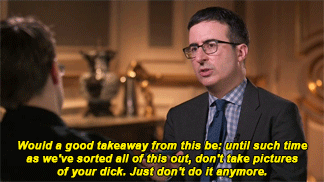

The End?
This class was challenging in ways that
were different from other classes. It really challenged me to think outside of
the school box that I’ve been trapped in all my life. We were encouraged to
wonder why we do any of the things we do for school. Why do we do school if not
for the good grade? And what happened to learning for the sake of learning, not
for the sake of a grade?
In
so many of my other classes I learn everything for the semester. I get through
the work and seem to do enough to make it through the class with the grade I
want. But then it’s winter break or summer and every little fact I learned
slowly fades away. This class was different. We weren’t required to memorize
anything. Even some of the assignments weren’t exactly ‘required’. We were told
we could choose just not to do something as a class. We were told we had the
power, but still we sat and listened, just like we are conditioned to do. I’m
not saying that’s necessarily a bad thing; it’s just something to think about.
I didn’t really want to ever skip class and miss out on the discussions. The
only thing we were really required to do was think about what we read and form
our own ideas, not merely listen to
someone else’s. As a result, the ideas in this class extended far beyond the
classroom or an essay. We turned to our own lives and thought about why we made
choices and why we might let ourselves be manipulated.
It was clear from
the start that grades didn’t matter. But even when I was given an A on the
first paper, I wanted to earn it. I still put a lot of effort into writing. On
the blog all semester I could have wrote random things that had no thought or
effort and then given myself an A for the blog. But I didn’t do that. It’s
funny that the class that I could have tried the least in and still probably done
well, I actually might have put the most effort and thought into. I guess
that’s a bit of manipulation there.
Subscribe to:
Comments (Atom)
